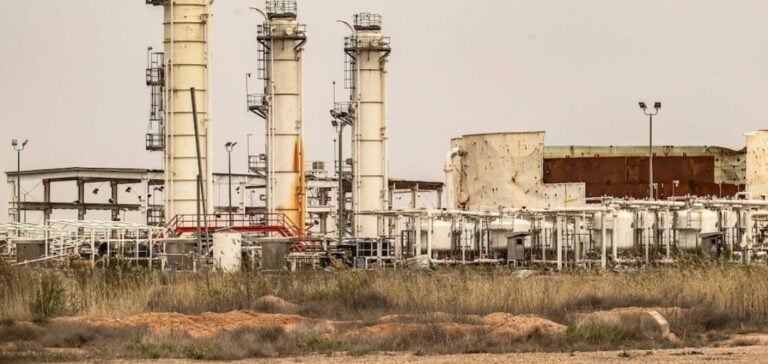Introduction
The departure of Bashar al-Assad, after more than two decades in power, marks a major political turning point for the region. While global oil markets are reacting cautiously, analysts are questioning the short- and medium-term repercussions for the region and the global economy.
A Moderate Increase in Oil Prices
The geopolitical instability triggered by Assad’s fall has led to a slight rise in oil prices. On Monday morning, Brent crude, a global benchmark, was up 1.01%, reaching $71.84 per barrel, while West Texas Intermediate (WTI) rose 1.19% to $68 per barrel.
According to John Evans, an analyst at PVM, “markets are closely watching the situation in Syria, but the reaction remains measured as the exact implications for the region are still being assessed.” These modest movements reflect Syria’s marginalization on the international oil scene for over a decade.
A Marginal Role in Oil Production
Before the start of the civil war in 2011, Syria produced 380,000 barrels per day (b/d) and exported part of its output. Since then, the country’s energy infrastructure has been severely damaged, reducing production to around 30,000 b/d by 2019, according to estimates.
Today, Syria plays only a minor role in global oil markets. Most of its domestic production is consumed locally, and its refining capacity, in Homs and Banias, operates at a fraction of its nominal potential.
A Strategic Geopolitical Role
Although Syria is not a major oil producer, its geographic position remains a key factor in regional balances. Assad’s departure weakens the positions of Russia and Iran, two strategic actors in the region. Russia still maintains a military presence in Tartous, while Iran remains a crucial oil supplier for Syria, exporting 121,000 b/d in November 2023.
Bjarne Schieldrop, an analyst at SEB, noted, “While there are no immediate consequences for oil, the weakened positions of Iran and Russia in the region could influence investor perceptions.”
OPEC+ Decisions and Global Dynamics
In parallel, the extension of production cuts by OPEC+ until 2025 also contributes to the rise in prices. According to John Plassard, an analyst at Mirabaud, these cuts aim to limit projected surpluses for 2025, initially estimated at 500,000 b/d and now revised to 200,000 b/d.
However, oil price trends will also depend on external factors, particularly the economic recovery in China, the world’s largest oil importer. Mixed economic data from Beijing continues to raise doubts about future demand.
An Uncertain Future for Syrian Energy
With ruined energy infrastructure and an unstable political context, Syria’s oil sector struggles to envision a recovery. The complexity of local alliances and dependence on foreign actors like Iran and Russia further complicates any reconstruction efforts.






















